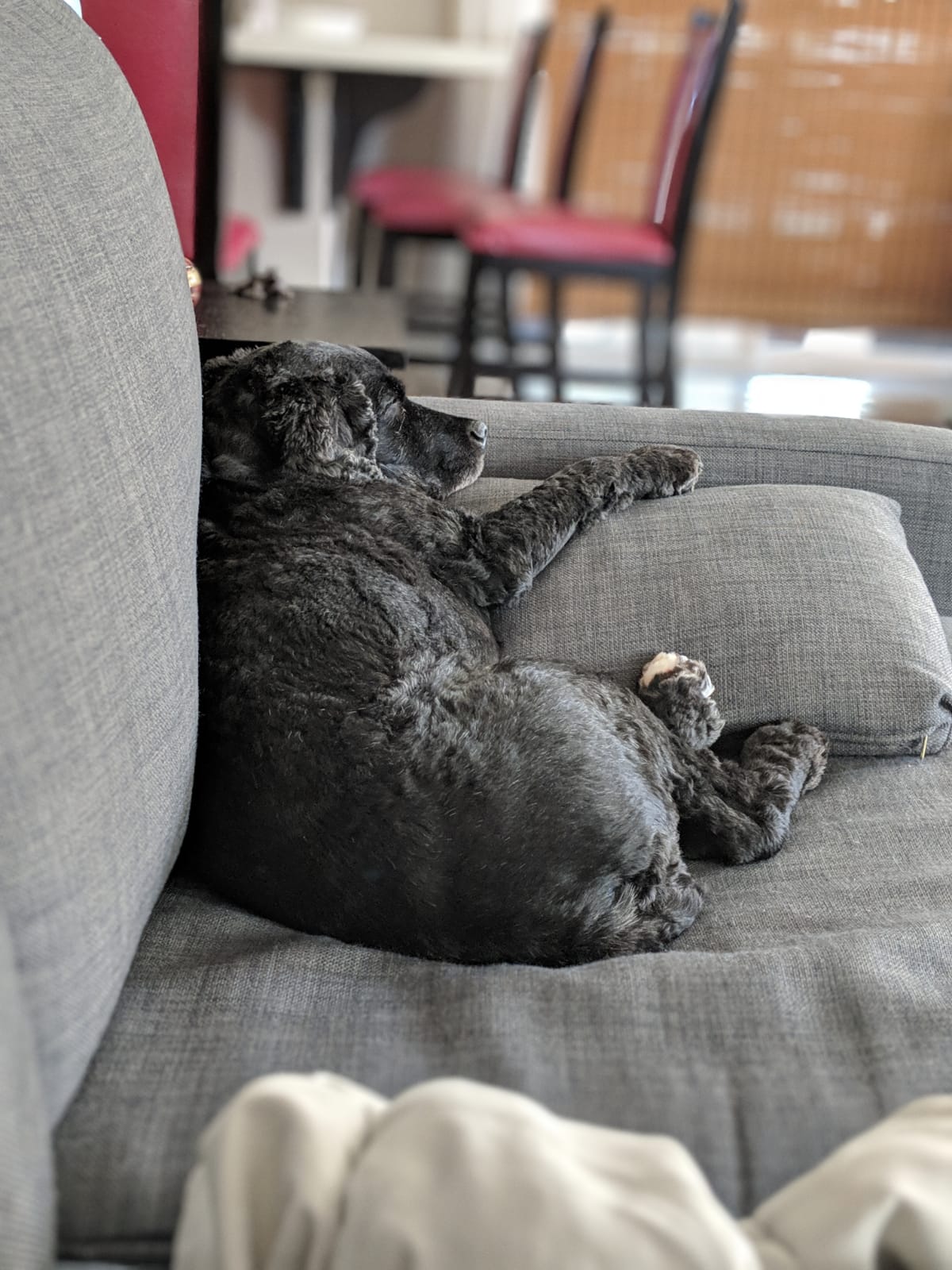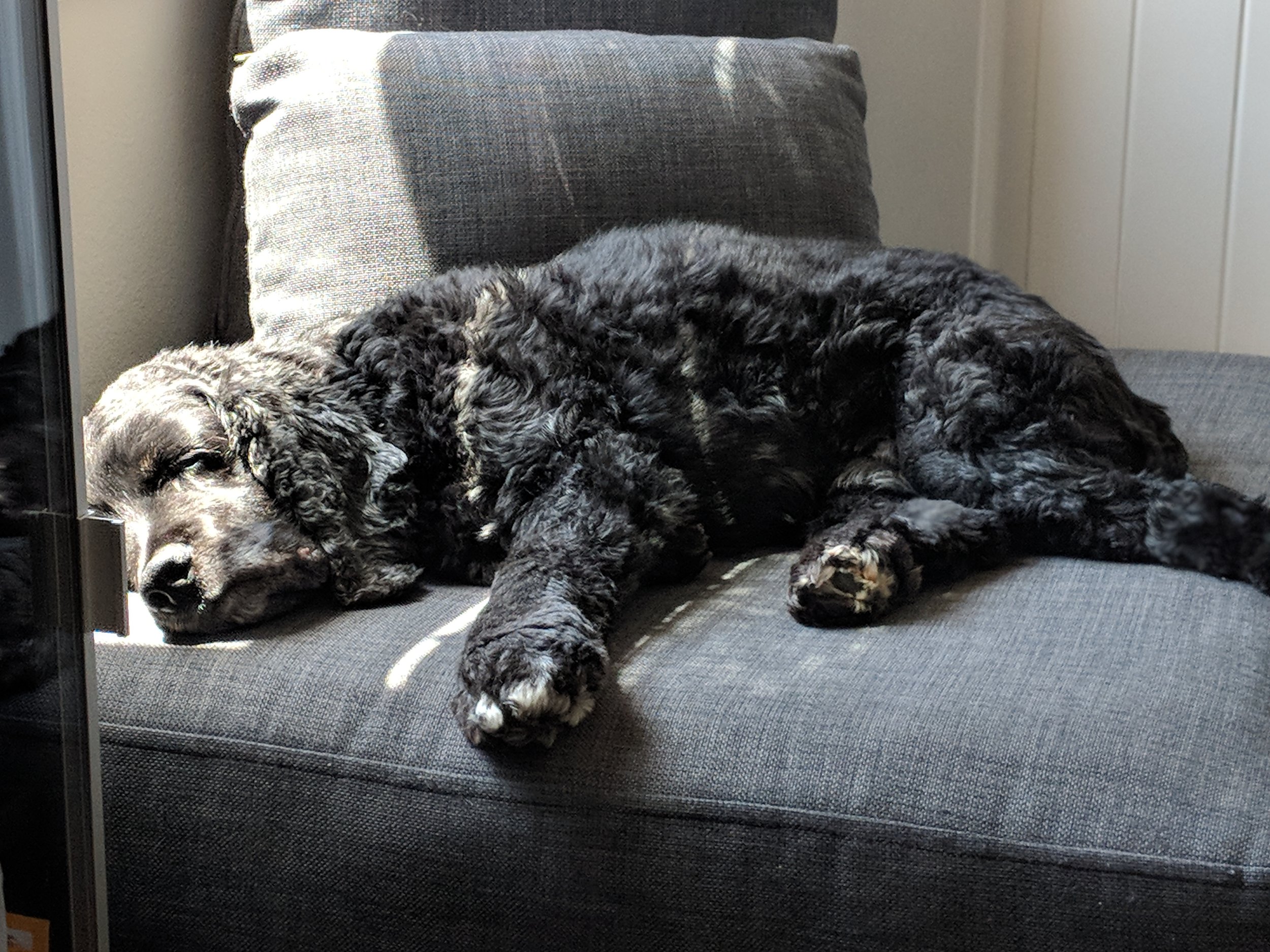Should I Get a Dog?
Dogs are the best, aren’t they? Seen here in their most dangerous form:
Photo by @reskp in Unsplash.
Who wouldn't fall in love with adorable, irresistible puppies? But there's the problem! Many times the decision to bring a dog into your home ends up being an impulse. Even if having a dog can be one of the best decisions in life, it can also be a disaster for both the family and the dog if you're not ready for the years-long commitment that comes with living with them.
The first months can be a lot of work and frustration, even if they're not puppies. But if invested well, the time spent will pay off exponentially in the quality of the bond that we build. A dog's company is one of the best things in life, but we have to know it's not always the right time. Here's a list of things you should consider before making a decision.
The Basics
The dog will need food, water, shelter, and medicine. In my opinion, a dog shouldn't be confined to a backyard. They're social animals that need to be near you. So, they also need company.
Enough of a budget to afford food, toys, grooming, and of course, medical care. This includes medicine, routine veterinary visits (at least one per year), vaccines, and an emergency fund.
PATIENCE! Because the dog will make more than one mistake while he learns. He'll have accidents, or we don't know if he'll decide that a couch or a pair of shoes is the best toy in the world. This is all natural and part of their learning process. That's why we have to be ready to manage their environment so they can learn faster. We have to dog-proof the house to remove any temptations to eat inappropriate stuff (because they will try to eat it).
Is this the home for this dog?
For starters, it's crucial that every member of the family is ok with getting a dog. Well, at least the adults :) And no, don't get me started on giving dogs as gifts because I'll be writing a whole post on that topic.
Not every dog is a good combination with small children. Or with cats, or other dogs that are already in the house. We should never bring a dog to the family if there hasn't been a proper introduction with all household members (2 and 4 legged).
Consider the amount of space you need. A palace isn't necessary, but there are large breed dogs that need more space than others. At the very minimum, they should have a place to sleep, to eat, and move around the house a bit.
For example, it’s not the same to find space for this little guy (photo by @levisaunders in Unsplash)…
… than finding space for this handsome boy (photo by @elashv in Unsplash).
Is this the dog for this home?
Each dog is an individual, but they share traits specific to their breed that you have to consider. For example, a German Shepherd or a Border Collie are working dogs that need a lot of exercise. A Yorkie or a Bichon need lots of grooming. Terriers tend to be hunters that dig to find their prey. So, consider which traits are a better fit for your lifestyle, activity levels, and daily routine.
You should also consider the dog's age. A puppy is a ton of work, like having a baby in the house. An older dog may have more medical needs and require more care.
Your Routine
You're going to need time. To take them out for a walk or a run, to return home to take them out for a potty break, to train them, and to play with them. A dog, no matter their age, cannot be alone all day. An adult dog shouldn't be on their own more than 8 hours a day. For puppies, no more than an hour per each month of age.
The reality of a dog's life is going to be mostly sleeping. Preferably next to you. Even then, they need daily physical and mental exercise. We've talked about their walks, but for mental exercise we can train them, play with them, or give them puzzle toys. Both types of activities will tire them out, and a rule to live by is: a tired dog is a happy dog (and family).
- If there's no other option and the dog has to be alone most of the day, are there any dog walkers nearby that could come? Or doggie daycare? Add this to the budget. Also, who's going to look after the dog if you travel?
What you should not do
Never leave them tied up. Limiting their movement is not good for anyone: it can exasperate them and cause a hyperactive dog when they're finally released, and in the worst case, it can cause an aggressive dog.
Never hit them if they make a mistake. What they will learn is to distrust you, and it's likely they'll want to defend themselves. I'm going to write an entire post on how dogs learn, but in the meantime, go read my previous experience and the results I got when I thought that was they way to educate a dog. All of this leads us to:
School for everybody
- It is vital that you train your dog. A dog looks at things this way: a weird species that's bigger than me just took me into their home and I have no idea what they're saying when they're talking to me, or what they're asking me to do. I don't know if they'll be nice to me and I'm pretty sure they don't understand what I'm trying to tell them either. Clearly they liked something I did, they sound happy. But even worse, now they're angry but I don't know why. So we have to teach our dogs how to live in our home.
- To do this, we have to teach them what we expect from them. How do you do this? Not to worry, that's why this blog is here. We'll be talking about every step. For starters, you should know that to train a dog you only need 5 to 10 minutes a day, but you have to do it every day. If you're looking for a trainer, ask what methods they use. If they say anything related to "alpha dog" or "dominance", keep looking. Positive reinforcement is the right way to go.
- We also need to study! To communicate with our dogs we also need to be able to hear how they talk to us through their body language. I'll also be writing a post on this, but for now, take a look here.
The last question is: are you ready for the best company you could have near you and unconditional love? Perfect! If you’re not absolutely sure you could try to take care of a friend’s dog for a weekend, or for an entire week to see how you would manage.
Now, what happens if the dog is in your house already? I can still help you! I’ll continue writing posts on basic training and learning. In the meantime, please send me your questions and comments.







